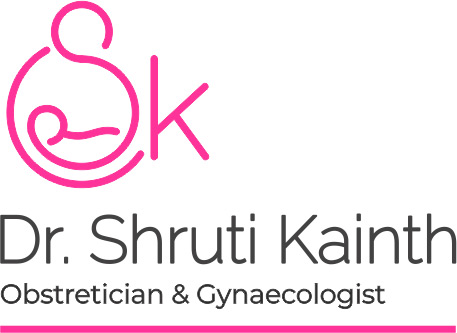Ectopic pregnancy
Ectopic pregnancy in Zirakpur
Ectopic pregnancy
An ectopic pregnancy is a complication of pregnancy in which the embryo implants outside of the uterus. It most commonly occurs in one of the fallopian tubes. It is also called an “ectopic gestation.” It happens in about 3 % pregnancies.
The developing embryo may implant in the fallopian tube, ovary, or a previous Cesarean or Myomectomy scar in the uterus or in the cervix. Ectopic pregnancies can be life-threatening for the mother and cannot be allowed to continue.
What are the Symptoms?
Symptoms of an ectopic pregnancy may include:
- Abdominal pain or cramping -Nausea or vomiting
- Light vaginal bleeding -Lower back pain
- Pelvic pressure or pain
- Fainting
What are the Risk Factor?
The risk factors for an ectopic pregnancy are:
- Endometriosis
- Sexually transmitted infections causing PID or pelvic inflammatory diseases
- Intrauterine device like multiload or copper T – History of infertility
- Smoking
What are the Causes?
Causes of an ectopic pregnancy can be due
- To a damaged or blocked fallopian tube,
- Pelvic inflammatory disease, or
- Use of intrauterine devices (IUDs),
- Other conditions that cause scarring in the fallopian tube.
How is An Ectopic Diagnosed?
A doctor will diagnose an ectopic pregnancy by doing a pelvic exam and ultrasound. The diagnosis is made by doing an ultrasound scan and an HCG blood test. If you have any concerns about your pregnancy, you should see your doctor as soon as possible.
Ectopic pregnancy treatments
Treatment options for an ectopic pregnancy depend on the stage at which it is diagnosed. A very early-stage diagnosis can be managed conservatively or with medication. If the diagnosis is at a time when the embryo is more than 4 cm or has a heartbeat or if the tube is already ruptured, then surgery to remove the embryo and mostly the Fallopian tube may be the only option.
The most common ectopic pregnancy treatments are:
1) Methotrexate
This is an injection that will be given to the patient and it will stop the growth of cells in the fallopian tube.
Laparoscopic surgery
This is a surgical procedure that will remove the fallopian tube with ectopic pregnancy. Sometimes it is possible to save the tube if it is not damaged or bleeding.
Open Surgery
This is rarely required nowadays, if the woman has a ruptured ectopic and is not maintaining her BP or is collapsing.
How to prevent ectopic pregnancy?
When a woman gets pregnant, there is always a small risk of ectopic pregnancy. Nowadays due to availability of beta hcg and Ultrasound transvaginally it is usually diagnosed early at an unruptured state and can be managed without surgery. An ectopic pregnancy can lead to serious complications, loss of a tube and may be life threatening.
It can not always be prevented but we can take certain steps to reduce its chances:
1) Visiting a Gynaecologist early when you miss your period and the pregnancy test is positive
2) Getting an early ultrasound in pregnancy if there are symptoms of pain or spotting or the beta hcg values are not doubling.
3) Taking prenatal vitamins which contain folate (folic acid)
4) Having regular examination by gynaecologist for any new Vaginal discharge if you have an intrauterine device (IUD) to prevent any infection, and visit urgently if you miss periods with an Iucd in place.
5) Being on 21 day birth control pills, and not on emergency contraception after unprotected sex
6) Not smoking
7) using barrier contraception ( male and female condoms) to avoid STDs and regular STD screening and treatments to prevent it becoming a PID

